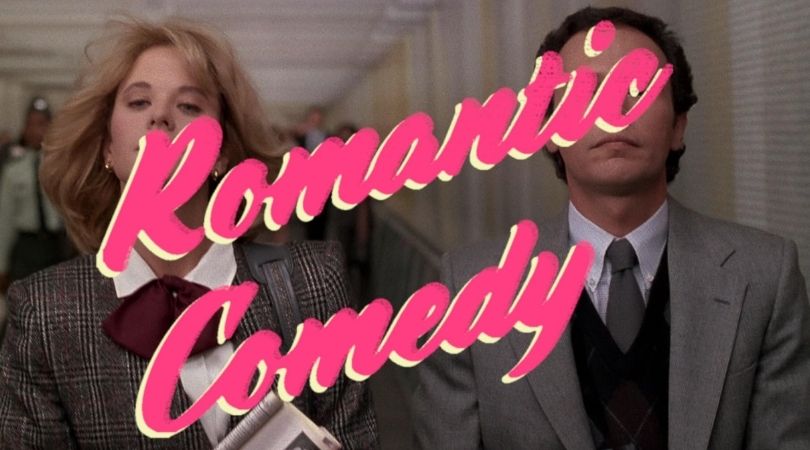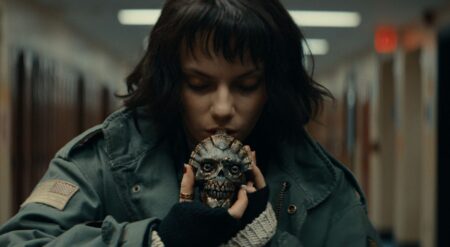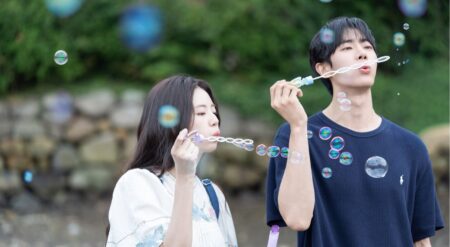Last year, Netflix’s To All the Boys I’ve Loved Before and Crazy Rich Asians reinvigorated the romantic comedy (rom-com) genre. They did so by being excellent films that both honor the rom-coms before them and breaking the tropes that defined those classics, namely by featuring diverse casts, and in the latter, an entirely Asian cast.
But 2018’s rom-com revival stands on top of a genre that has been both treated as a lesser genre among critics and a genre that has reinforced and created harmful stereotypes for viewers to internalize. Making its world premiere at South by Southwest 2019, Romantic Comedy, directed by Elizabeth Sankey, dives into the history of rom-coms, exploring the good, the bad, then why and how we bring these films into our lives.
Romantic Comedy (2019) is a documentary that fills the void of critical analysis of the genre. Given that the genre has been seen as frivolous love stories, it has gone without the analysis that other genres have undergone. Whether it is because of the love stories, the comedy, or the predominantly female audience, Sankey explains how films within this genre create visions of love, relationships, and romance that are based on the cultural times of the films but impact audiences beyond their tenure and show us how to love – even when they warp our sense of romance.
The film is in many ways a personal thesis on a genre that as Sankey explains, has had an enormous impact on her life. They shaped how she saw love, how she experienced it, and ultimately how she looked for it. From It Happened One Night to How to Lose a Guy in 10 Days, and everything in between and after until last year’s releases, Sankey explains how the genre and the films within it are as problematic as they are comforting.
But Sankey doesn’t do this with talking heads. Instead, she forces her audience to engage with her material for the entirety of the film by using clips from the 1930s, which she defines as the genre’s birth, to newer films. Sankey narrates the documentary with the help of eight other commentators. As their voices map out the anatomy, impact, and evolution of rom-coms, Sankey expertly cuts together iconic and mundane scenes from 160 films into a master class on a genre so many of us love.
The anatomy of a rom-com is simple, a heroine, “screwball dialogue,” a romance, and after hijinks, there is a final declaration of love. However, as Sankey explains, things aren’t always as them seem. In fact, in her dissection of the rom-com heroine, I found myself making a list of the movies I idolized for their romances and female characters. And as she went down her list of tropes, they all fell down.
Our heroines are often very successful, yet they’re clumsy, in over their head, and ultimately in need of a man to level them out. In the cases where women aren’t the career women, they’re the muse for the male character, inspiring him to create, love, and become someone new. And in almost all cases, it’s the job of the woman to fix the man of his bad habits, give into the “tenacious man” who virtually stalks them, and ultimately relinquish their lives to love, inevitable marriage, and babies. While there are some exceptions to her critique, every example of her point is on the screen.
Romantic Comedy (2019) tackles the problems and relatability of the titular genre.
Now, Sankey does well to point out that these characters aren’t real and don’t have a burden to reflect reality, however, their existence influences how their viewers, mostly developing young women begin to form what it means to in love. In many moments, it felt like during Sankey’s very personal essay about the genre, she was talking directly to me. As I started to digest the films, the theme of rom-com heroines saving the men, even in situations where they seemed to be the ones in need started to click. In them, the heroines, are just that. Women who save the men that come into their path, through love, and giving up pieces of themselves.
We see in these films that in order to get the guy, we have to become what they love. We eat what they eat, drink what they drink, indulge their hobbies, and never think of ourselves. This is a notion that is so prevalent in Hollywood rom-coms it deeply effects teenagers coming into their sexuality, and honestly, it affected me. Now, I outgrew it, but as Sankey says, it takes time to realize that rom-coms aren’t real romance, especially when you haven’t had experience in a relationship.
Beyond listing the problematic tropes that the majority of us now know about our favorite films, which include sabotage, lying, stalking, and overall the numerous red flags that would make you file a police report, she takes the time to cover the largest audience missed in these formulaic movies: queer couples and people of color. When she hits the point, the viewer realizes that almost all the faces they have seen on screen kissing in this documentary are white heterosexual couples.
Romantic Comedy (2019) is a movie about movies that highlights an underappreciated genre.
Now, instead of stating that these films aren’t there, she instead explains the need to look outside Hollywood. With titles like How Stella Got Her Groove Back, Just Wright, Saving Face, and Kissing Jessica Stein, Sankey explains that although there are films out there, they are not the ones in the public eye, and they aren’t the ones that you find without seeking out. After her dissection of this erasure of romances that aren’t white and heterosexual, Sankey looks to the future of rom-coms.
She maps out a course for the future with platonic rom-coms, popularized by I Love You, Man, same-sex rom-coms, and ultimately rom-coms with diverse leads living romances in the same way we watch Harry and Sally or all of the incarnations of Julia Roberts and Richard Gere. Ending with references to films like Crazy Rich Asians and The Big Sick, a film that has stripped the genre down to its foundation and is optimistic in building it back up.
The beauty in this documentary is that it comes from a real place. As Sankey recounts her own tumultuous relationship with the genre, she invites the audience to explore with her. Overall, Romantic Comedy is a must watch for lovers of the rom-com genre, and of film as a whole. Some may think that this critical analysis may ruin their favorite romances for them, but to be honest it doesn’t.
If anything, Romantic Comedy (2019) shows that loving and learning from problematic things is okay, so long as we propel them forward and out of their history and into a situation where they reflect the realities of the world today. The love for the genre is apparent throughout the entirety of the film, in fact, this deep a look into the genre could not come from someone who doesn’t have a love and knowledge of the genre.
The future of the genre is bright and Sankey’s documentary shows this. As a binger of all things rom-com, Romantic Comedy (2019) is an insightful work about a genre that just needs a little more love.
Romantic Comedy (2019) is available on Video on Demand.
Romantic Comedy
-
Rating - 10/1010/10
TL;DR
The future of the genre is bright and Sankey’s documentary shows this. As a binger of all things rom-com, Romantic Comedy is an insightful work about a genre that just needs a little more love.







